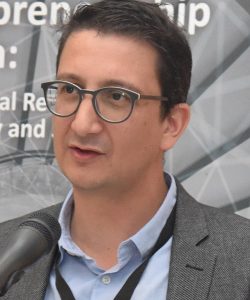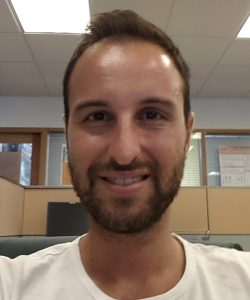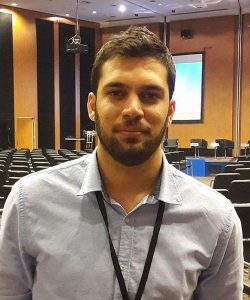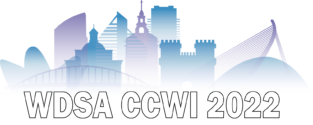Courses
Introduction to the EPANET-MATLAB Toolkit for Smart Water Networks research
Course Leader
Dr. Demetrios Eliades, KIOS Research and Innovation Center of Excellence, University of Cyprus. Send e-mail.
Course instructors

Dr. Demetrios Eliades
Demetrios Eliades is a Research Assistant Professor at the KIOS Research and Innovation Center of Excellence. His main area of research is on Smart Water Networks modelling, monitoring and security, aiming to reduce water losses, safeguard water quality and respond to contamination events, as well as increase cyber-physical security. He has worked with various research challenges including state estimation, sensor placement, real-time event diagnosis and active detection methods. He is also interested in developing open-source research tools (such as the EPANET-MATLAB Toolkit), and benchmarks. He co-organized the international competition “Battle of the Leakage Detection and Isolation Methods” (BattLeDIM) in 2020. He was the technical coordinator in various European research, innovation and industrial projects, such as the H2020 PathoCERT project and Interreg Greece-Cyprus SmartWater2020.

Dr. Stelios Vrachimis
Stelios Vrachimis is a Research Associate at the KIOS Research and Innovation Center of Excellence. He holds a B.Sc. and Ph.D. degrees in Electrical Engineering from the Department of Electrical and Computer Engineering at the University of Cyprus and an M.Sc. degree in Control Systems (Distinction) from Imperial College London. His research has focused on real-time state estimation of hydraulics and water quality in water distribution systems and on developing methodologies for fault-diagnosis, such as leakages and water contamination, in these systems. His other research interests include critical infrastructures modelling, optimization and fault-adaptive control with applications on large-scale engineering systems.

Marios Kyriakou
Marios S. Kyriakou received his B.Sc (2012) and his M.Sc. (2014) in Electrical Engineering from the Department of Electrical and Computer Engineering of the University of Cyprus. His Master Thesis with the title “Risk Evaluation and Sensor Placement for Disinfection By-Products in Water Distribution Systems” was carried out in KIOS under the supervision of Prof. Marios M. Polycarpou. Since 2012, he is working as a Research/Software Engineer at the KIOS Research and Innovation Center of Excellence. His research interests are focused on water distribution systems modelling and GIS.

Pavlos Pavlou
Pavlos Pavlou is a Researcher at the KIOS Research and Innovation Center of Excellence since June 2018. His research interests focus on the design, monitoring, risk analysis and optimization of water distribution networks. He received his B.Sc. Degree in Civil and Environmental Engineering from the Department of Civil and Environmental Engineering of the University of Cyprus in 2016. In 2018, he obtained his M.Sc Degree in Environmental Engineering with specialization in Urban Water Engineering from the Technical University of Denmark where he was also a teaching assistant.
Short Description
The EPANET-MATLAB Toolkit is an open-source software, originally developed by the KIOS Center of Excellence at the University of Cyprus. It provides a programming interface for the latest version of EPANET, a hydraulic and quality modeling software created by the US EPA, with MATLAB, a high-level technical computing software. The goal of the EPANET-MATLAB Toolkit is to serve as a common programming framework for research and development in the growing field of smart water networks. The Toolkit provides easy-to-use commands/wrappers for viewing, modifying, simulating and plotting results produced by the EPANET libraries. Moreover, various tools have been implemented to allow the execution of tasks which are complicated with the standard EPANET library.
This tutorial is aimed at PhD students and early-stage researchers who are interested in learning how to effectively use the MATLAB and the EPANET-MATLAB Toolkit, using the latest version of EPANET 2.2, to address different research challenges related to smart water networks, including modelling, monitoring, control, and security.
Specifically, examples on the following topics could include: Performing hydraulic and water quality simulations, Uncertainty modeling and Monte-Carlo simulations, Sensor placement, State estimation, Event detection, Time-series analysis tools, Graph theory applications to water systems
Target Audience
This course is aimed at PhD students and early-stage researchers
